Why could fish and chips shops disappear from UK high streets? Problems threatening the local chippy explained
This article contains affiliate links. We may earn a small commission on items purchased through this article, but that does not affect our editorial judgement.
and live on Freeview channel 276
For many people across the UK, it’s a Friday night ritual to head to the local fish and chips shop.
You need only look at the reaction to the Binley Mega Chippy song to see how revered these food institutions are to their customers.
Advertisement
Hide AdAdvertisement
Hide AdHowever, many of these businesses are under threat as a result of the Russia-Ukraine war and rocketing inflation.
The situation has led to predictions from chippy trade body the National Federation of Fish Friers (NFFF) that a third of the country’s fish and chips shops could close if things continue in this vein.
So why exactly are fish and chip shops struggling - and what can be done to stop them from disappearing from UK high streets?
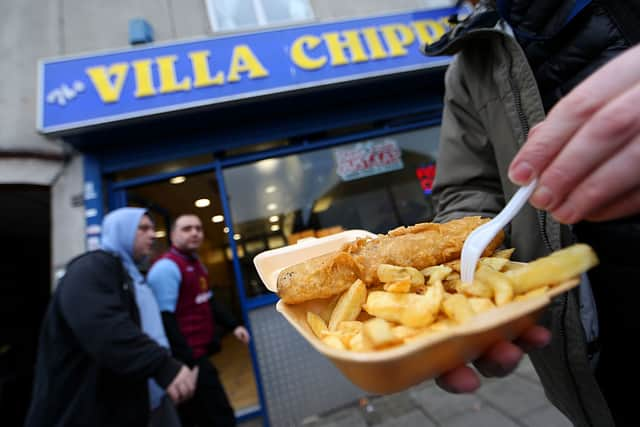

Why are fish and chip shops struggling?
Every food and drink business, from producers through to retailers, is struggling with inflation and the other knock on impacts of the war in Ukraine.
Advertisement
Hide AdAdvertisement
Hide AdThe situation is particularly acute for fish and chips shops for a whole host of reasons.
Everything from the fish they sell to the energy they need to fry haddock and potatoes has either risen in price or had its supply compromised.
Here’s an overview of the issues facing the sector:
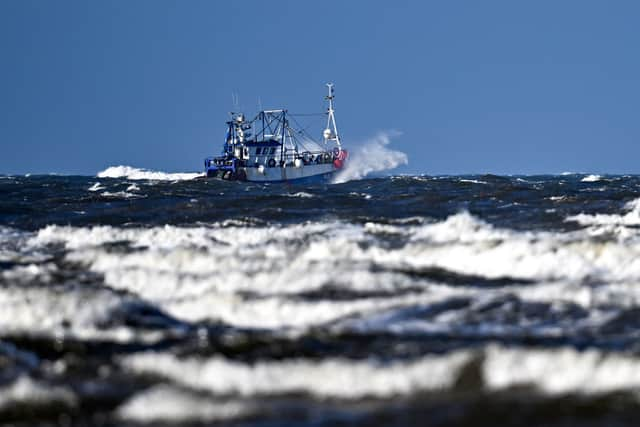

Fuel cost hikes for boats
The problem starts with the very boats that catch the seafood fish and chips shops need.
The fuel they need to get out to sea has rocketed in price as a result of the Russia-Ukraine war.
Advertisement
Hide AdAdvertisement
Hide AdSeafish - the public body that supports the seafood industry - told NationalWorld that since the start of the year, marine fuel prices have doubled when compared to the average price seen in ports last year.
Between February and June 2022, the price rose by almost 70% on average in the UK ports Seafish says it monitors.
The National Federation of Fishermen’s Organisations (NFFO) - the trade body representing most UK fishers - illustrated the impact of these cost hikes through examples provided by its membership.
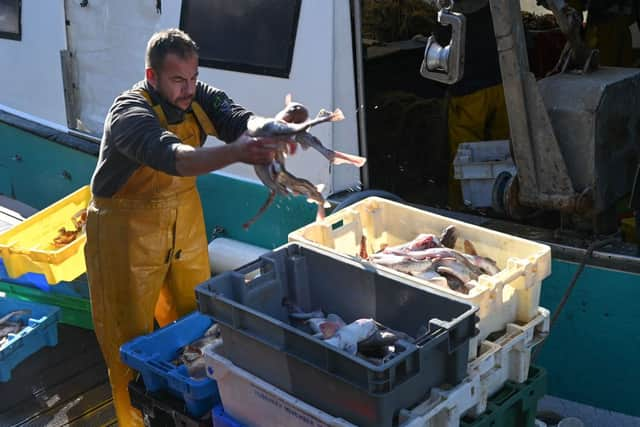

In one instance, a vessel landed £44,176 worth of seafood but had to pay a fuel bill of £29,068.
Advertisement
Hide AdAdvertisement
Hide AdIt left the boat’s eight crew taking home £1,516 between them - £189 each.
Another example was from an ‘inshore’ vessel (one which sticks close to the coast), which landed a catch worth £8,706 after eight days of fishing but had to pay a fuel bill of £5,234.
The crew of that vessel took home just £927 between them for more than a week’s work.
The NFFO describes the current situation as “unsustainable” and says fishers face “a cruel choice” of either not going out to sea - or doing so only “to make a loss”.
Rising fish prices
Advertisement
Hide AdAdvertisement
Hide AdThe cost of fuel has contributed to rising fish prices, but sanctions against Russia - or at least, the threat of them - have also driven costs up for chippies.
In the wake of the invasion of Ukraine, the UK government announced it would slap 35% tariffs on Russian whitefish - but it has since paused the sanction.
The government did not provide a comment about the tariff but indicated to NationalWorld that it was still planning to enforce it, subject to work it’s carrying out on the implications it could have for the fishing and fish processing industry.
Russia controls 45% of all the world’s whitefish - i.e. fish and chips shop favourites like cod and haddock - so prices were likely to rise without tariffs.
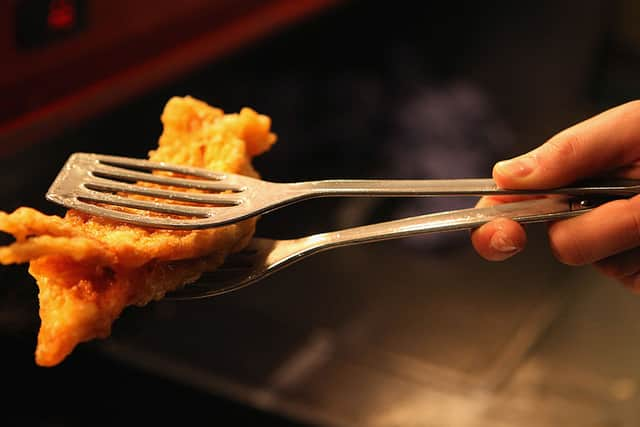

Advertisement
Hide AdAdvertisement
Hide AdSeafish data also shows the UK is nowhere near self-sufficient in these fish species.
UK fishers caught 47,000 tonnes of cod and haddock in 2020 (the latest year data was available for) but imported 430,000 tonnes of whitefish from countries including Russia.
At least 50% of these imports may have originated in Russia, Seafish estimates.
Even though tariffs have not yet been introduced, the mere threat of them has already had an impact.
Advertisement
Hide AdAdvertisement
Hide AdIndeed, data from government agency the Marine Management Organisation shows the prices of most whitefish species rose against average 2020/21 prices in the first quarter of 2022.
The increases were 34% for cod and 45% for hake - although haddock prices remained relatively stable.
UK Fisheries - a long-distance fishing company specialising in the supply of fish and chips shops - said the introduction of tariffs would: “have a huge and negative impact on the fish and chip shop trade”.
Spiralling cooking oil costs
Another key ingredient for fish and chips shops is the oil they use to fry fish and potatoes.
Advertisement
Hide AdAdvertisement
Hide AdGiven Ukraine is one of the world’s largest producers of sunflower oil, there has already been anxiety in global markets about how much the country will be able to harvest given the war.
While this is still a big unknown, we have already seen the implications of the conflict in supplies of cooking oil in our supermarkets - with it disappearing off many store’s shelves in recent months.
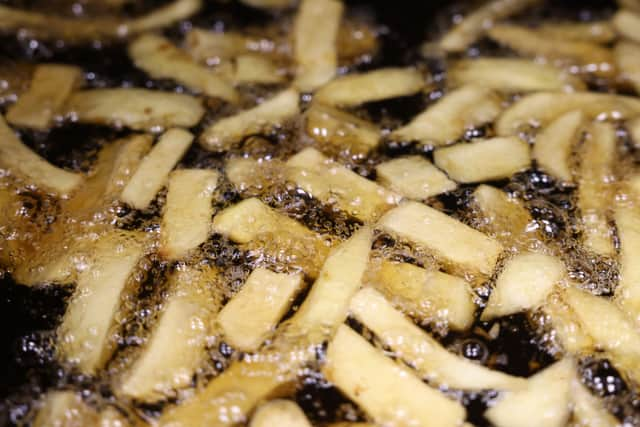

Prices were rising even since the beginning of the Covid pandemic, Seafish says.
Imported sunflower oil costs tripled from around $700 per tonne in March 2020 to $2,250 per tonne in March 2022, according to its figures.
Advertisement
Hide AdAdvertisement
Hide AdRocketing energy bills and VAT
According to the NFFF, fish and chips shops are also being pummelled by high energy costs.
The organisation’s President Andrew Crook says many of his members have suffered from the lack of a business equivalent of the Ofgem energy price cap.
He says he has heard of bill increases of “up to 500%” for some fish and chips shops.
Advertisement
Hide AdAdvertisement
Hide AdAlongside this pressure on bills, Mr Crook criticised the government’s decision to return VAT to 20% for hospitality businesses in April.
The rate of the tax paid by eateries and restaurants was temporarily reduced to 12.5% in 2021 to help firms manage Covid pandemic costs.
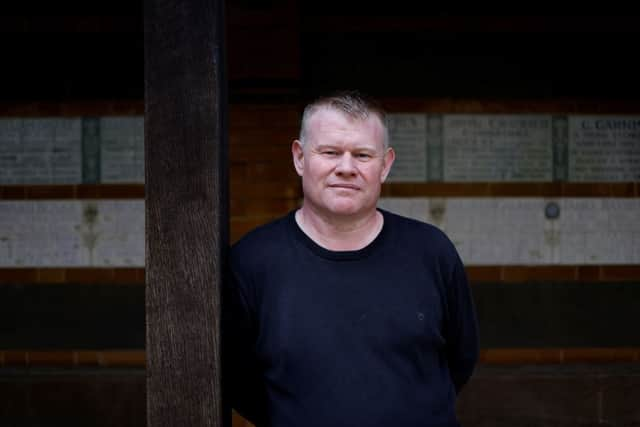

“Whilst in the eyes of the HMRC we just collect VAT from the public and pass it on, in reality it does come out of our margin in normal times and certainly with the inflationary prices we are seeing currently,” Mr Crook said.
The other issue the NFFF says it has with VAT is that it treats food vendors differently depending on whether their products are served hot or cold.
Advertisement
Hide AdAdvertisement
Hide AdWhile fish and chips shops pay full VAT, firms selling a pasty or sausage roll that’s been allowed to cool and isn’t sold with the intention of being consumed ‘hot’ pay no VAT.
“The system is outdated, unfair and it encourages fraud. We have to keep fighting for reform,” Mr Crook argues.
The government declined to comment on the issue.
What do cost pressures mean for fish and chips shops?
Reacting to all of these cost pressures, NFFF’s Andrew Crook told NationalWorld it amounted to a “perfect storm” for fish and chips shops.
“Fish and chips is a resilient industry, so the industry will survive - but I think we are inevitably going to see some businesses fail.
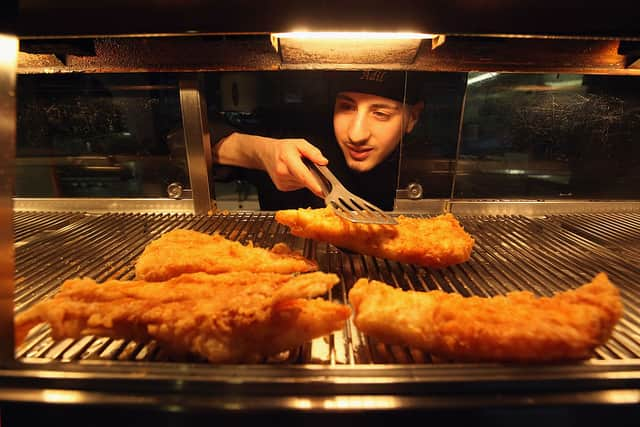

Advertisement
Hide AdAdvertisement
Hide Ad“For someone running a business, it’s more than just a job - you put your heart and soul into it and it becomes a big part of your life.
“If that business is failing, it’s more than just losing a job; it weighs heavily on you, so there is certainly a human aspect to this.”
Mr Crook says we will likely see the first business failures when VAT bills and quarterly rents become due, saying those “who have the most cash reserves” will be the ones who survive.
It is going to be when the VAT bills and quarterly rent bills come in that breaks some of these businesses, its now a matter for who have the most cash reserves as to who will survive.
Can fish and chip shops be saved?
Advertisement
Hide AdAdvertisement
Hide AdAndrew Crook believes the industry will survive, but admits there’s not much that can currently be done to support his sector.
“Most of what is going on is beyond anyone’s control as the [price] increases are a global issue.
“But we hoped the government would be brave enough to reform the outdated VAT system for hospitality.
“It does feel to my members that [the] government does not like small business.
Advertisement
Hide AdAdvertisement
Hide Ad“How sad would it be if every high street looked the same? We need reform and quickly before small independents become an endangered species.”
The government did not directly respond to Mr Crook’s views, but pointed to the support measures introduced in the Spring Statement, including the fuel duty cut and a temporary reduction in business rates for hospitality firms.
Comment Guidelines
National World encourages reader discussion on our stories. User feedback, insights and back-and-forth exchanges add a rich layer of context to reporting. Please review our Community Guidelines before commenting.
